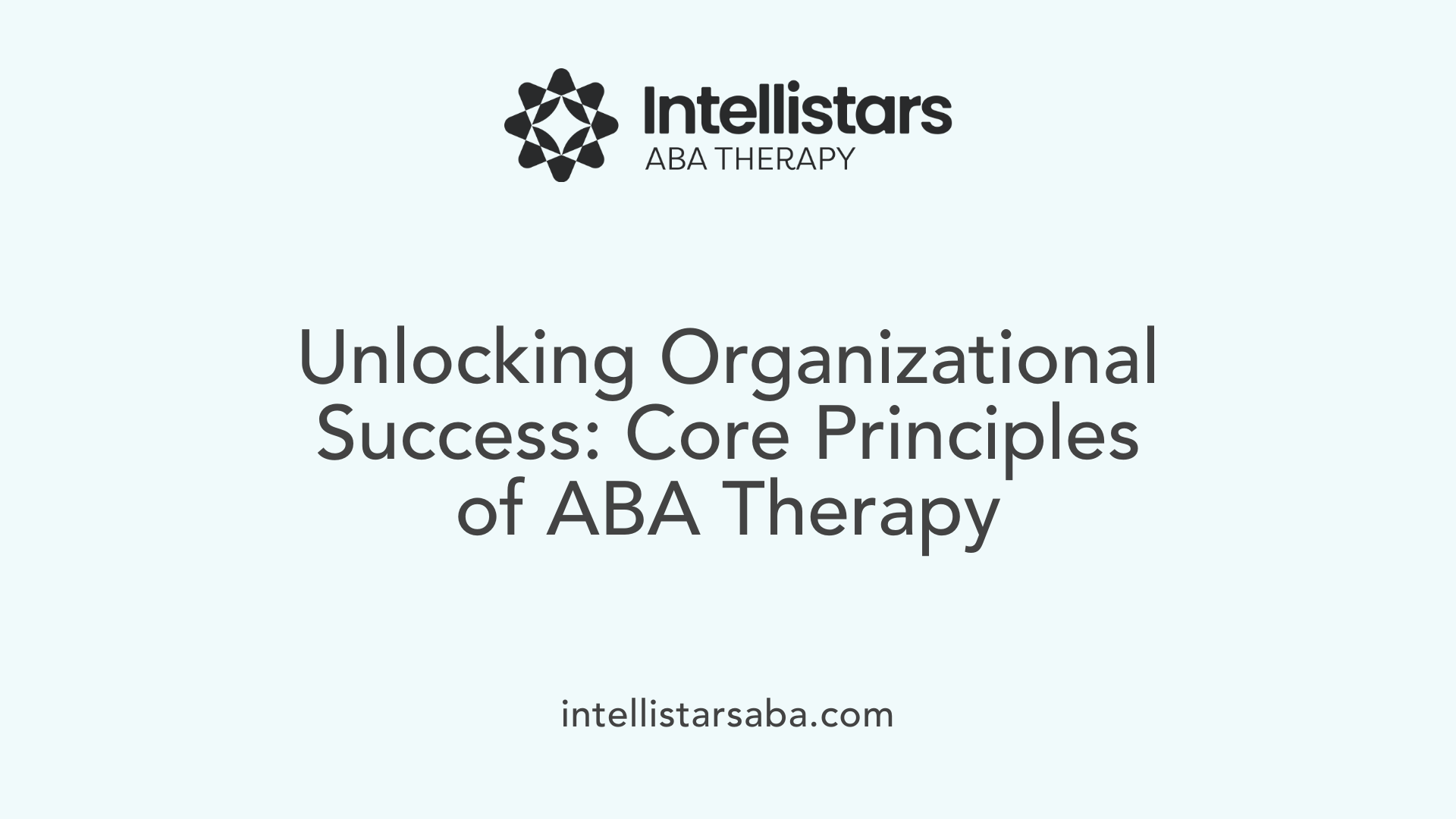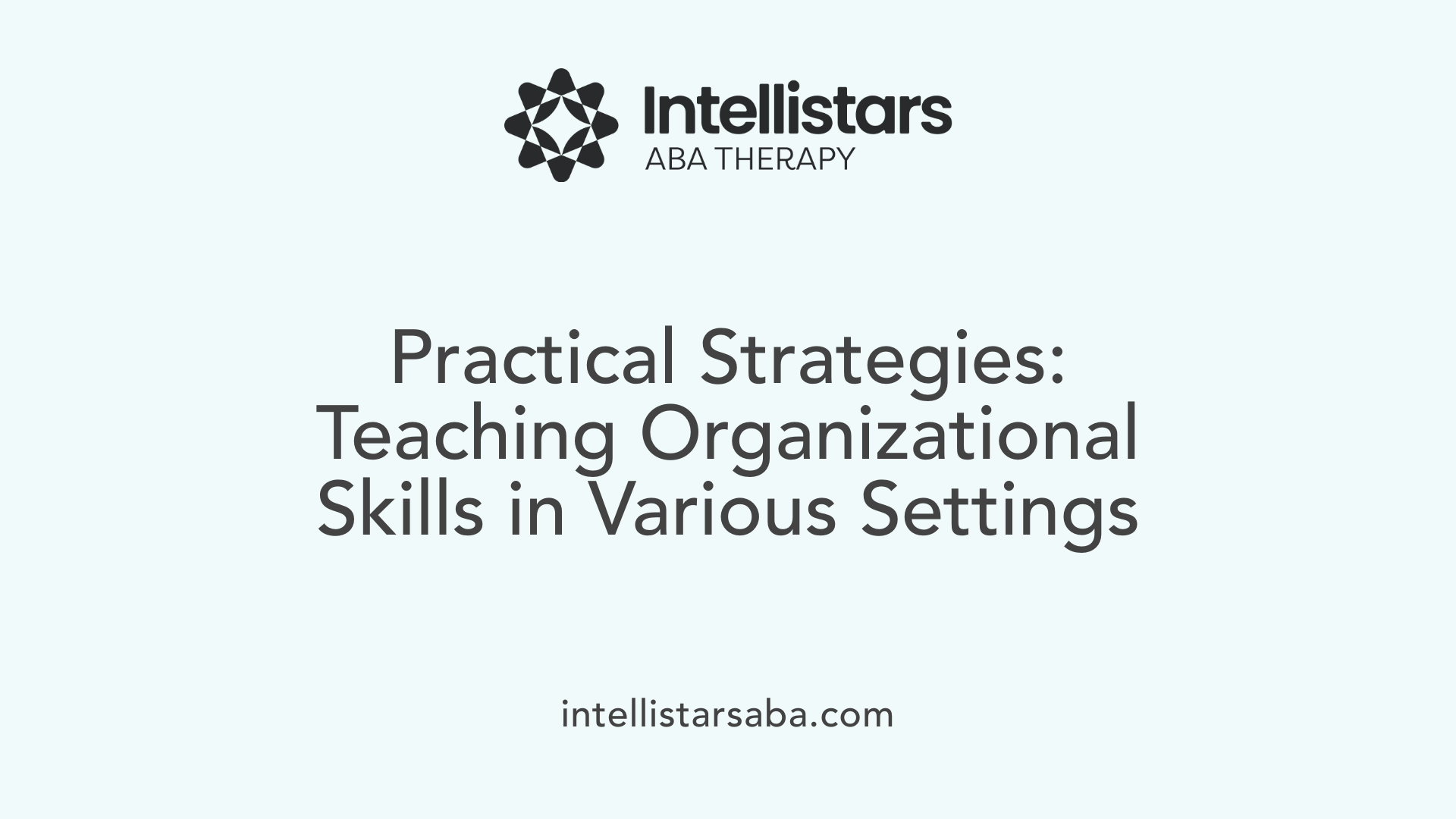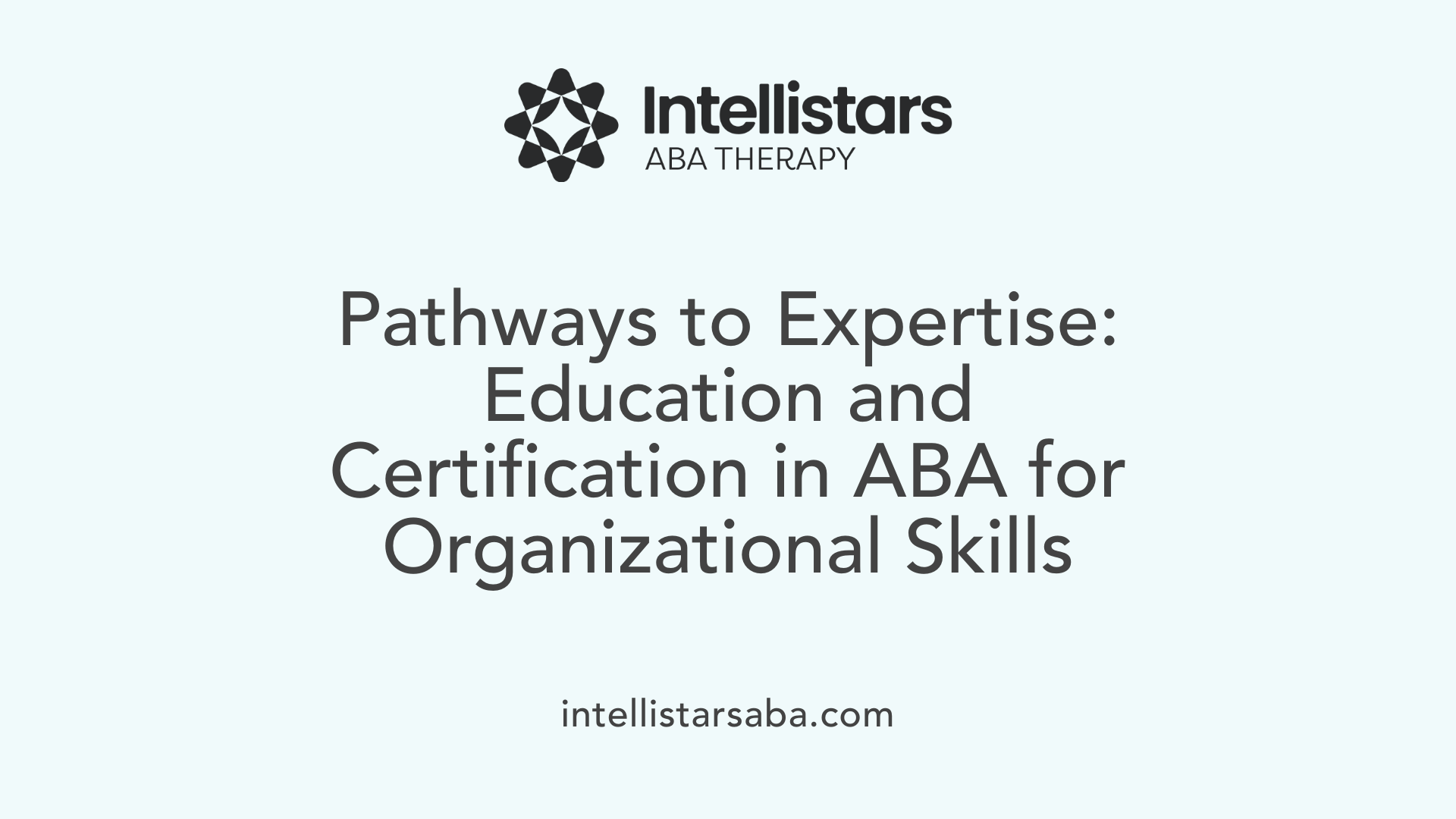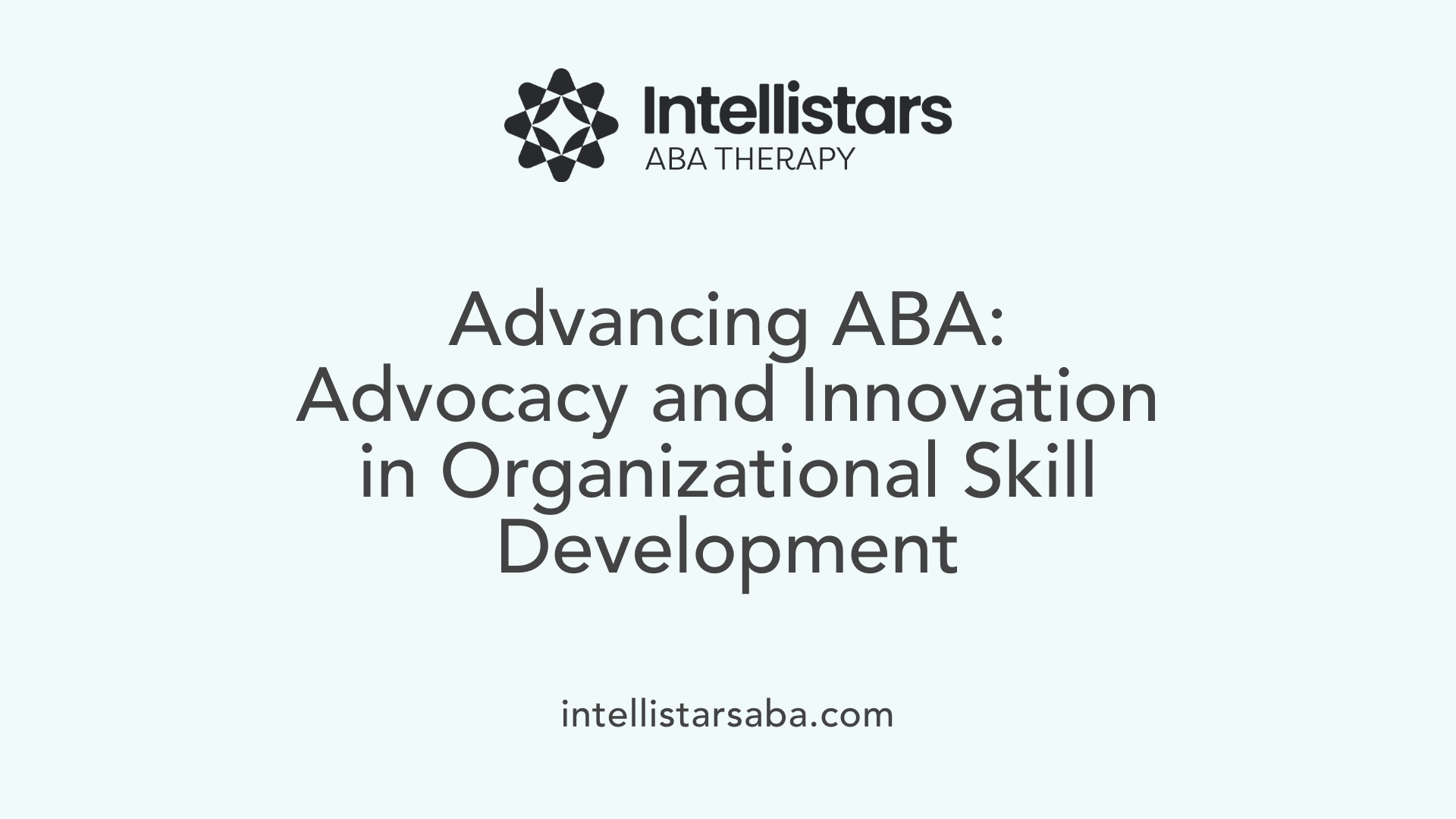Understanding ABA Therapy and Its Foundations
Applied Behavior Analysis (ABA) therapy is a widely recognized and evidence-based approach designed to improve functional skills in individuals with autism spectrum disorder (ASD). By focusing on behavioral modification through positive reinforcement and data-driven strategies, ABA therapy helps individuals develop essential capabilities, including organizational skills, which are vital for daily independence and social involvement.
What is ABA Therapy and Its Focus on Autism and Behavioral Analysis?
Definition and Scope of ABA Therapy
Applied Behavior Analysis (ABA) is an evidence-based practice designed to help individuals achieve their fullest potential. It focuses on positive reinforcement and behavior modification to encourage desirable behaviors while reducing those that are less helpful. By analyzing the relationship between behaviors and their environments, ABA provides personalized strategies tailored to each individual's needs.
Behavioral Analysis Principles
ABA uses several core techniques including prompting, reinforcement, modeling, and shaping to promote behavioral improvements. These strategies help increase communication, social skills, self-care, and academic performance. Importantly, ABA relies on data-driven decision-making, allowing therapists to measure progress and adjust treatment plans based on real outcomes.
Settings Where ABA Is Applied
ABA therapy can be delivered in a variety of environments such as homes, schools, and community settings. This flexibility ensures interventions are contextually relevant and help individuals generalize skills across daily life.
Roles of ABA Professionals
Professionals trained in ABA include Board Certified Behavior Analysts (BCBAs), Board Certified Assistant Behavior Analysts (BCaBAs), and Registered Behavior Technicians (RBTs). These experts conduct assessments, design treatment plans, supervise therapy, and oversee implementation. Moreover, advanced degrees like a Master’s in ABA prepare individuals to become certified analysts, expanding access to skilled support for those with autism spectrum disorder.
Through careful behavioral analysis and collaborative efforts, ABA therapy offers a structured, scientifically supported way to enhance the lives of individuals with autism.
The Core Principles of ABA Therapy in Developing Organizational Skills

How Does Positive Reinforcement and Prompting Support Organizational Skills?
ABA therapy emphasizes positive reinforcement and prompting to encourage desired behaviors. In developing organizational skills, reinforcing attempts to categorize, prioritize, or follow routines motivates individuals to repeat these helpful actions. Prompting guides learners through the steps of organizing tasks, whether through verbal cues or visual aids, gradually fostering independence.
What Role Do Modeling and Shaping Behaviors Play?
Modeling involves demonstrating organizational strategies, such as arranging materials or planning schedules, for individuals to observe and imitate. Shaping builds on this by rewarding successive approximations toward effective organizational habits. This gradual encouragement helps individuals acquire complex skills through manageable steps.
How Are Functional Behavior Assessments Utilized?
Functional Behavior Assessments (FBAs) analyze behaviors that may hinder organizational success, identifying triggers behind disorganization or resistance to routines. By understanding these causes, ABA professionals can design interventions that address specific barriers and promote constructive organizational practices.
How Are Interventions Tailored for Skill-Building?
Interventions are customized using data-driven decision-making, ensuring that strategies fit an individual's unique needs and learning pace. Through continuous monitoring and adjustment, ABA therapy enhances communication, social, academic, and self-care abilities closely tied to effective organizational skills.
| Principle | Description | Application in Organizational Skills |
|---|---|---|
| Positive Reinforcement & Prompting | Encouraging desired actions with rewards and cues | Motivating task completion and routine following |
| Modeling & Shaping Behaviors | Demonstrating and gradually reinforcing skills | Teaching step-by-step organization techniques |
| Functional Behavior Assessments | Identifying behavioral causes impacting skills | Addressing disorganization triggers |
| Tailored Interventions | Customizing approaches based on data | Developing personalized organizational strategies |
The Role of ABA Professionals in Enhancing Organizational Competencies
Certification and training of ABA providers
ABA professionals undergo rigorous training and certification to ensure high-quality interventions. Board Certified Behavior Analysts (BCBAs), Board Certified Assistant Behavior Analysts (BCaBAs), and Registered Behavior Technicians (RBTs) receive specialized education focusing on evidence-based behavior modification techniques. Graduate programs, especially Master's degrees in ABA, prepare individuals to become BCBAs, equipping them with the skills necessary to work effectively with individuals with autism spectrum disorder (ASD).
Assessment and individualized treatment planning
ABA providers conduct thorough assessments to understand each individual's unique needs and strengths. They use this information to design personalized treatment plans aimed at enhancing communication, social skills, academic achievement, and self-care abilities. Tailoring interventions to the individual promotes better engagement and outcomes.
Supervision and data-driven adjustments
Throughout treatment, ABA professionals closely monitor progress through systematic data collection. This data-driven approach allows for continual adjustments to interventions, ensuring they remain effective and aligned with the individual's goals. Supervision by certified experts maintains fidelity to the therapy model.
Interdisciplinary collaboration
ABA practitioners often collaborate with educators, healthcare providers, and families to create comprehensive support systems. This cooperative approach enhances organizational competencies by integrating diverse expertise, ensuring that behavioral interventions seamlessly fit within broader care and educational frameworks.
Settings and Strategies for Teaching Organizational Skills via ABA

How Are ABA Interventions Applied in Different Settings?
ABA therapy is versatile, supporting skill development in homes, schools, and community environments. In each setting, interventions are tailored to the individual's daily routines and naturally occurring activities, creating meaningful learning experiences. For example, at home, ABA techniques might focus on organizing personal belongings or managing daily schedules, while in schools, they support academic organization such as managing assignments and materials. Community settings provide opportunities to practice organizational skills in real-world contexts, enhancing independence.
What Strategies Are Used to Support Organizational Skills in ABA?
To promote organizational abilities, ABA professionals use a combination of prompting, reinforcement, and modeling.
- Prompting: Guidance is provided to help initiate or complete tasks, gradually fading as the individual becomes more independent.
- Reinforcement: Positive feedback or rewards are given to encourage consistent use of organizational strategies.
- Modeling: Demonstrations of desired behaviors show the individual how to organize materials or plan activities. These strategies are embedded naturally within everyday tasks, increasing their practicality and effectiveness.
How Is Generalization of Organizational Skills Encouraged?
ABA emphasizes generalization, teaching skills that transfer across various environments and situations. By practicing organizational skills in multiple contexts—such as home, school, and community—individuals learn to apply what they have learned broadly. This approach ensures that skills are functional and relevant, supporting independence beyond therapy sessions.
Use of Data and Measurement to Support Organizational Skill Acquisition

Why is data-driven decision making important in ABA?
Data-driven decision making is fundamental in Applied Behavior Analysis (ABA) because it ensures interventions are effective and tailored to each individual's needs. By systematically collecting and analyzing data, ABA professionals can objectively evaluate whether strategies are helping individuals achieve their goals.
How is progress tracked through measurable outcomes?
Progress in ABA is tracked through regular collection of measurable data, such as the frequency of target behaviors or skill mastery levels. This allows therapists to clearly see improvements over time and identify areas needing more focus.
How are interventions adjusted based on data analysis?
Based on the data collected, ABA therapists can modify their intervention plans. If certain strategies are not producing the desired outcomes, adjustments such as changing prompts or reinforcement schedules can be made to improve effectiveness. Continuous monitoring ensures that the therapy evolves in response to the individual's development.
Utilizing data in this structured way promotes transparency and accountability in ABA services, leading to better acquisition of organizational skills and overall progress for individuals with autism.
Educational Pathways for ABA Practitioners Specializing in Organizational Skills

Graduate education and certification processes
Graduate programs in ABA, such as Master's degrees, are essential for individuals aiming to become board-certified behavior analysts (BCBAs). These programs provide comprehensive training in behavior analysis principles and their practical application. Upon completion, candidates are eligible to pursue certification, ensuring they meet professional standards to deliver effective interventions.
Competency in behavioral assessment and intervention design
Through graduate education, aspiring ABA practitioners develop strong skills in conducting behavioral assessments that inform tailored treatment plans. They learn to design interventions focusing on improving organizational skills among individuals with autism and other developmental challenges. The coursework emphasizes strategies like prompting, reinforcement, and shaping to encourage positive behaviors and reduce disruptive ones.
Continuous professional development related to organizational skill training
Maintaining certification requires continuing education that enhances practitioners' abilities to support clients’ organizational capacities effectively. Professionals stay updated with data-driven practices and innovative techniques. They also engage in supervision, advocacy, and research to refine methods that foster better communication, academic performance, and daily living skills related to organization.
| Educational Aspect | Description | Significance |
|---|---|---|
| Graduate degree (Master’s) | In-depth ABA principles and clinical application | Prepares for BCBA certification and practice |
| Behavioral assessment training | Teaches evaluation of client needs and progress | Enables personalized intervention plans |
| Intervention design | Focus on managing and improving organizational behaviors | Helps clients build essential life and academic skills |
| Continuing education | Ongoing learning in latest ABA methodologies | Ensures effective and current organizational skill training |
Impact of ABA Therapy on Daily Living Through Improved Organizational Skills
How Does ABA Enhance Communication and Self-Care Through Improved Organization?
ABA therapy improves the organizational skills of individuals with autism by breaking down complex tasks into manageable steps. For example, organizing daily routines helps improve self-care abilities such as dressing and grooming. Similarly, structured communication techniques within ABA aid in sequencing conversations and responses, making communication clearer and more effective.
What Are the Academic and Social Benefits of Organizational Competence?
Organizational skills gained through ABA promote better academic performance by helping individuals plan, complete assignments, and manage time effectively. Socially, these skills support participation in group activities and improve turn-taking and sharing behaviors. This leads to more successful interactions in school and community settings.
What Are the Long-Term Outcomes of ABA-Driven Skill Development?
Long-term, individuals benefit from increased independence and adaptability. The structured approach of ABA, including reinforcement and data-driven adjustments, ensures consistent progress. As organizational competence grows, so does the ability to handle new challenges, improving quality of life and future opportunities.
Advocacy and Future Directions in ABA for Organizational Skill Development

How Do ABA Professionals Influence Advocacy and Policy?
ABA professionals actively participate in advocacy efforts aimed at improving policies that affect individuals receiving ABA therapy. Through their expertise, behavior analysts contribute valuable insights to shape guidelines and standards that enhance intervention quality and access.
What Are the Latest Research Advances in Organizational Skill Interventions?
Recent research in ABA has focused on refining strategies that improve organizational skills, emphasizing evidence-based methods like prompting, modeling, and reinforcement. Advances include tailored interventions that effectively teach time management, task completion, and self-management to individuals with autism.
How Are Training Initiatives Expanding ABA’s Impact?
Training programs for ABA professionals emphasize expanding their knowledge in functional skills development, including organizational abilities. Graduate degrees and certification programs prepare therapists to implement data-driven interventions and broaden ABA's influence in educational and community settings, ensuring consistent quality across practice environments.
Summarizing the Significance of ABA in Cultivating Organizational Skills
ABA therapy, grounded in evidence-based practices and delivered by trained professionals, plays a crucial role in the development of organizational skills for individuals with autism spectrum disorder. By leveraging strategies such as positive reinforcement, prompting, and data-driven interventions across varied settings, ABA not only enhances specific behaviors but fosters greater independence and participation in daily life. Continued research, education, and advocacy within the ABA community will further refine and expand the therapy’s effectiveness, ensuring that individuals achieve meaningful improvements in organizational competence that contribute to their overall quality of life.






